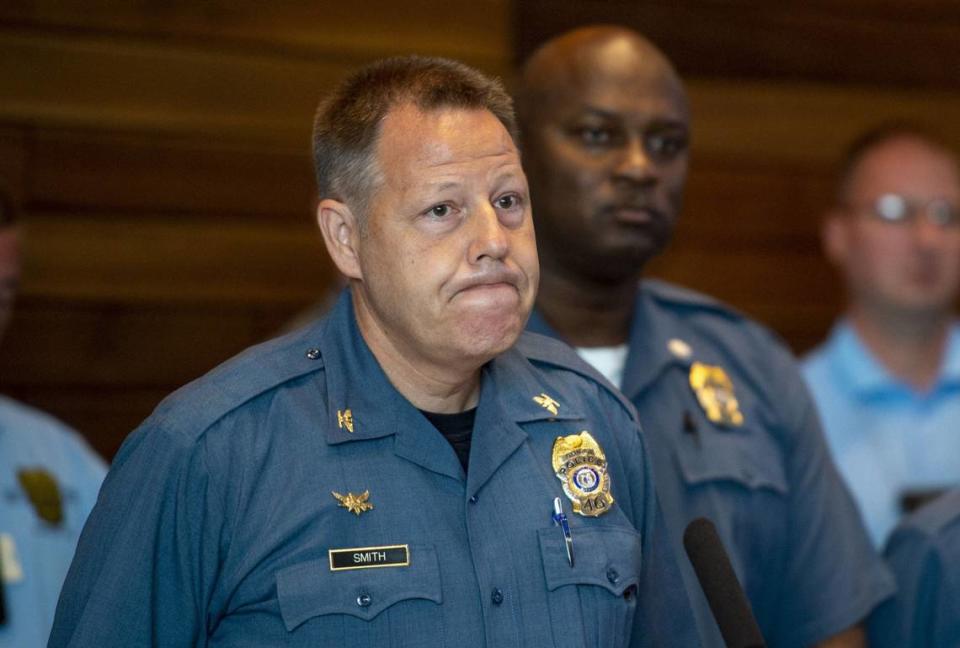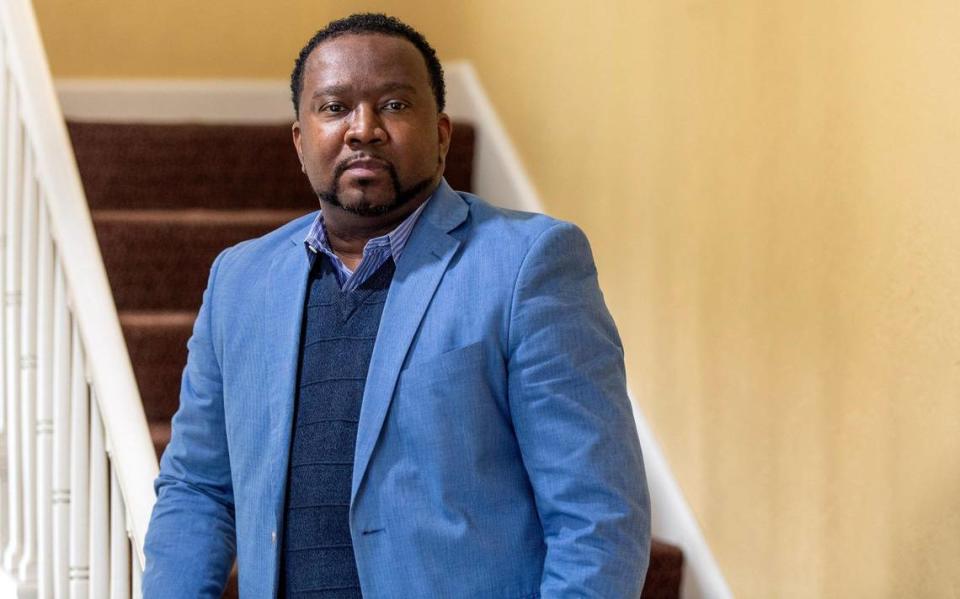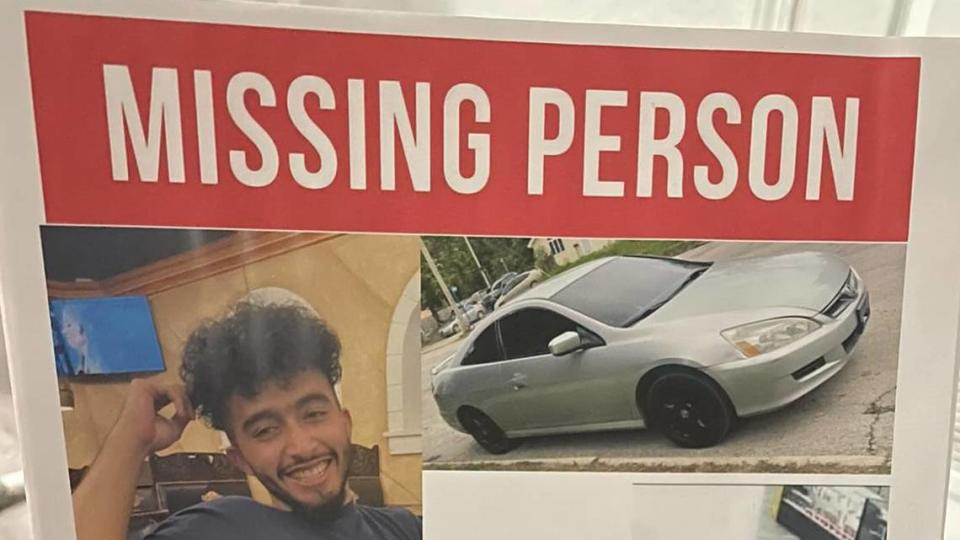‘We have listened’: KC police chief relaunches missing persons unit amid criticism
A missing persons unit disbanded last year by the Kansas City Police Department is being started up again after community leaders raised concerns, according to Police Chief Stacey Graves.
The revived unit will initially have seven detectives and one sergeant supervisor dedicated to investigating missing persons cases. Graves made the announcement at a meeting of the Kansas City Board of Police Commissioners last week.
The move comes as the police department has faced criticism from Black leaders who say police are not taking missing persons reports seriously enough in their communities.
Those concerns gained urgency last year, when a Black woman from Kansas City escaped captivity at a man’s home in Excelsior Springs not long after the police had publicly dismissed reports of Black women going missing. Then last month, the police department faced questions about two separate cases in which they did not alert the public about missing teenagers who were later found dead.
Graves said during the police board meeting the department is continuing to find ways to listen and be responsive to the concerns of the community.
“We have listened to our community’s concern for those who go missing in our city,” Graves said later last week. “Bringing back the missing persons squad will better serve all people in our city.”
“This is us listening and responding to the community as a whole, and responding to staffing realities and making the best use of the people we have in investigations so that missing persons detectives can focus on and specialize in finding missing persons,” Graves said.
The staffing change will go into effect Sunday, April 16.
Missing persons unit disbanded under Rick Smith
The missing persons unit was disbanded last year by then-Kansas City Police Chief Rick Smith, who said he reassigned those detectives to investigate homicide and assaults.
At the time, speaking to a meeting of the South Kansas City Alliance, Smith said:
“We used to have a missing person cold case squad... and just two weeks ago I disbanded that and put them back into regular homicide and regular assault squad because we don’t have enough detectives,” according to a video clip posted by FOX4.
He also reassigned missing persons investigations to other detectives, adding to their responsibilities.

On Tuesday, Sgt. Jacob Becchina, a police spokesman, said the unit Smith disbanded was a missing persons squad. And that is the unit now being reformed.
Each year the department receives hundreds of juvenile and adult missing persons reports, Becchina said.
Damon Daniel, president of the AdHoc Group Against Crime, applauded Graves for the move and said she has taken the “right foot forward to re-establish the missing person’s squad.”
AdHoc is one of several community groups the police department has partnered with to investigate missing persons. Some of that includes working directly with families, producing fliers and helping with searches.
“It is my hope that communications with families of missing persons improves with the reactivated division,” Daniel said.
“One recurring issue that we hear from families that have reported a loved one missing is updates on the status of the investigation. Even if there are no changes, people simply want to know that someone, especially the enforcement agency that has been equipped with the most tools, is also concerned about their loved one’s disappearance.
“A phone call to say “no changes, we are doing what we can” will at least give some level of comfort,” he said.

Criticisms of KCPD investigations
Community activists have long complained that police are not responsive or seem indifferent to families trying to report a missing relative or loved one.
That includes cases in which police could have circulated a flier to the public about a missing teen, as they do in many cases, but chose not to.
Most recently, police did not alert the public about the disappearance of Oscar Cabral, 18, when his family reported him missing on March 18.
Five days later, his body was found near the heavily wooded trails inside Swope Park. His death is being investigated as a homicide.
Two weeks before, police found the body of 13-year-old Jayden Robker in a pond near his Northland home. In that case, police had delayed four days before alerting the public, later explaining that they had difficulty obtaining a current photo from the family.

Michele Watley, founder of Shirley’s Kitchen Cabinet, has led public discussions about missing persons and violence against Black women. She said the relaunch of the squad is an opportunity for the police to demonstrate transparency and accountability.
“But it leads to more questions,” Watley said. “What does it look like to have it? What does that mean for not only missing persons cases overall but how does this directly address the issue of the disproportionate rate of Black people particularly, Black women who go missing whose cases go either unsolved or not given the same attention and resources as others?”
“The announcement doesn’t directly answer that,” she said.
Advocates for missing persons have said the police department does not follow best practices in those cases.
The police department does not maintain a list of active missing person cases that is accessible to the public. It does not require the missing persons unit to file monthly reports tracking which cases are being closed or going unsolved, and it does not track the demographics of missing persons.

As a result, those who provide support to families of the missing say it’s nearly impossible to know what resources police are using to search for specific missing persons, or whether Black and brown communities are being disproportionately affected.
In Kansas City, it is left to detectives to decide whether individual cases are worth pursuing, based on whether that person is in immediate danger or might harm themselves, police say.
Many advocates who study the best practices in the field say every department should have strategies for alerting community members of missing persons and communicating with them during a search.
Another example: Watley said the police department’s website showing missing persons cases has not been updated.
“And if the department is seeking trust or community they have to remember that trust is gained through transparency,” Watley said.
“So I think that’s the common thread that the department has to focus on and maybe prioritize and deal with these issues.”

